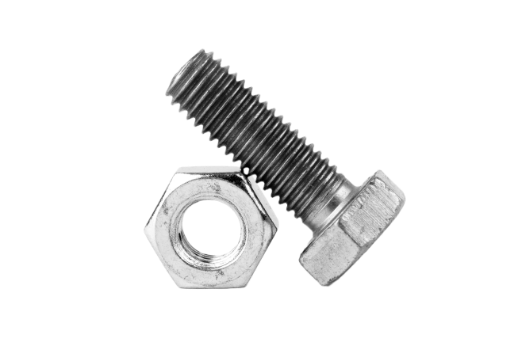
Selecting the appropriate wood screw is crucial for any woodworking project, whether it's crafting fine furniture or building a robust deck. Understanding the intricacies of screw types, sizes, and the correct application ensures structural integrity and longevity of your projects. This article offers an in-depth look at wood screw dimensions, uses, and how to select the perfect Fastener Systems screws for your needs.
Understanding Wood's Unique Properties for Screw Selection
Environmental Sensitivity of Wood
Wood is inherently responsive to environmental changes, particularly humidity and temperature fluctuations. These changes can cause wood to expand or contract, necessitating the use of screws that can provide a secure hold while accommodating these movements. This ensures the integrity of the joint is maintained without causing damage to the wood.
Hardness and Density Variations
The type of wood being worked with significantly influences the choice of screws. Softwoods, like pine, are prone to splitting due to their lower density and thus require screws with finer threads and sharper points. In contrast, hardwoods such as oak or maple are denser and more resistant to penetration. These characteristics demand screws with coarser threads and greater strength in order to achieve a reliable grip.
Importance of Grain Direction
The direction of the wood grain also affects how well the screws can hold. Wood is generally more robust and less likely to split when fastened along the grain rather than across it. The placement and driving angle of screws must be carefully considered to maximize the strength and stability of the connection by ensuring that the fastening method aligns with the natural structure of the wood.
The Essentials of Wood Screws
Wood screws are specifically designed to meet the demands of working with wood. They come in various types, each suited for different tasks and wood characteristics:
Flathead Screws
Flathead screws sit flush with the wood surface, and are ideal for projects where a smooth finish is crucial, such as in fine furniture making.
Oval Head Screws
With a slightly rounded top that protrudes above the wood, oval head screws combine aesthetic appeal with functionality, and are often used in applications where a decorative look is desired.
Roundhead Screws
Roundhead screws provide strong hold capabilities with a head that stands proud of the wood surface, and are suitable for projects where the screws can be visible and where extra hold strength is required.
Wood screws are categorized by their gauge (diameter) and length. The gauge generally ranges from #0 to #24, with the length varying from 1/4-inch to several inches. These dimensions are crucial as they must correspond appropriately to the wood’s thickness and the specific requirements of the project to ensure optimal hold and structural integrity.
Understanding these essentials sets the stage for choosing the right screws for your woodworking projects, to help ensure durable, functional, and aesthetically pleasing results.
Detailed Screw Size Chart and Dimensions
A comprehensive screw size chart is an indispensable tool for selecting the right screw for your project. These charts typically list the screw sizes, lengths, diameters, and the corresponding drill bit size required for pre-drilling. This information helps prevent wood splitting and that the screw holds securely.
Understanding the various dimensions of screws, such as the minor diameter (the thread's root diameter), shank diameter (the smooth part of the screw above the threads), and head diameter, is essential for selecting the right screw for the specific type of wood and part of the project. For example, softer woods might require screws with a larger thread diameter to grip securely without causing damage.
Notes on the Chart:
- Screw Gauge: Represents the thickness of the screw, with smaller numbers indicating thinner screws
- Length: The range of available lengths for each gauge, which should be chosen based on the thickness of the wood and the depth of embedment needed
- Diameter: The outer diameter of the screw's threads
- Minor Diameter: Also known as the root diameter, and is the diameter of the screw beneath the threads
- Shank Diameter: The diameter of the smooth part of the screw above the threads
- Head Diameter: The overall diameter at the widest point of the screw's head
- Recommended Drill Bit Size: The size of the drill bit recommended for pre-drilling a pilot hole, which should be slightly smaller than the minor diameter to ensure a tight fit without splitting the wood
This chart provides a general guideline and may need to be adjusted based on specific project requirements and the type of wood used.
Selecting the Right Screw for the Job
The choice of screw size and type should be tailored to the nature of the woodworking project. Smaller gauge screws, such as #4 or #6, are perfect for delicate applications like attaching hardware to cabinets or assembling small crafts. Larger screws, such as #10 or #12, provide more strength and are ideal for constructing furniture or decking.
It’s also crucial to consider the tools for driving these screws. Using the correct driver bit size ensures that the screw is driven correctly without stripping the head or damaging the wood. For instance, a #2 Phillips head is a common choice for medium-sized screws, while larger screws may require a #3 Phillips head.
Practical Tips and Considerations
The thread count per inch (TPI) of a screw is another important consideration:
- A higher TPI can provide a stronger hold in harder woods, while a lower TPI might be better suited for softer woods.
- Understanding the appropriate TPI for your wood type can significantly impact the screw's holding power and the overall durability of the project.
When installing wood screws, it’s important to drill pilot holes to prevent the wood from splitting. This is particularly crucial in hardwoods:
- The pilot hole should be slightly smaller than the screw’s core diameter to ensure a tight fit.
- Using a bit of wax or soap on the threads can ease the installation process and prevent the wood from cracking.
Find the Perfect Match for Your Projects with Fastener Systems Wood Screws
Discover the right wood screws for your projects with Fastener Systems Inc. Our comprehensive product line includes a wide range of screws tailored for any woodworking task, from intricate crafts to sturdy outdoor decking.
Contact us today for more information!

